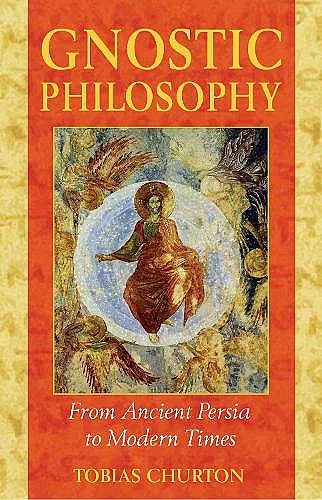Gnostic Philosophy
From Ancient Persia to Modern Times
Format:Paperback
Publisher:Inner Traditions Bear and Company
Published:25th Jan '05
Currently unavailable, our supplier has not provided us a restock date

Gnosticism was a contemporary of early Christianity, and its demise can be traced to Christianity's efforts to silence its teachings. The Gnostic message, however, was not destroyed but simply went underground. Starting with the first emergence of Gnosticism, the author shows how its influence extended from the teachings of neo-Platonists and the magical traditions of the Middle Ages to the beliefs and ideas of the Sufis, Jacob Böhme, Carl Jung, Rudolf Steiner, and the Rosicrucians and Freemasons. In the language of spiritual freemasonry, gnosisis the rejected stone necessary for the completion of the Temple, a Temple of a new cosmic understanding that today's heirs to Gnosticism continue to strive to create. The Gnostics believed that the universe embodies a ceaseless contest between opposing principles. Terrestrial life exhibits the struggle between good and evil, life and death, beauty and ugliness, and enlightenment and ignorance: gnosisand agnosis. The very nature of physical space and time are obstacles to humanity's ability to remember its divine origins and recover its original unity with God. Thus the preeminent gnostic secret is that we are God in potential and the purpose of bona fide gnostic teaching is to return us to our godlike nature. Tobias Churton is a filmmaker and the founding editor of the magazine FreemasonryToday. He studied theology at Oxford University and created the award-winning documentary series and accompanying book The Gnostics, as well as several other films on Christian doctrine, mysticism, and magical folklore. He lives in England.
"Recommended for upper-level academic collections that specialize in early Christianity, religion, or philosophy." * Brad Matthies, Butler Univ. Lib., Library Journal, Feb. 1, 2005 *
"Exhaustive (but not exhausting) in scope and copiously annotated, [Churton's] work will spice up virtually any reading list of Gnosticism and early Christianity. . . . will pique the interest not only of professional academics but anyone interested in the Gnostics through the centuries." * Publishers Weekly, Jan. 24, 2005 *
"Churton separates the wheat from the chaff and disposes of unnecessary speculations and fantasy. To get a good handle on what Gnosticism is really all about (and isn't), a great place to start is with Gnostic Philosophy by Tobias Churton." * Robert Burns, New Dawn, Nov-Dec 2005 *
"GET THIS BOOK. This is, quite simply, one of the best books I have read this year. Though I could, with plenty of justification, describe this work as erudite, witty, humorous, profound, engaging, or any of a number of depictions, none of these would convey the sense of validation I got with devouring its pages." * Sven Davisson, Ashe! Journal of Experimental Sexuality, 2005 *
"We desperately need a solid historical overview of Gnosticism which is historically credible and yet not too academic to put it out of reach of the average reader and this book is it. To get a good handle on what Gnosticism really is (and isn’t), a great place to start is with Gnostic Philosophy by Tobias Churton." * Living Traditions, May 2007 *
ISBN: 9781594770357
Dimensions: 229mm x 152mm x 25mm
Weight: 497g
480 pages